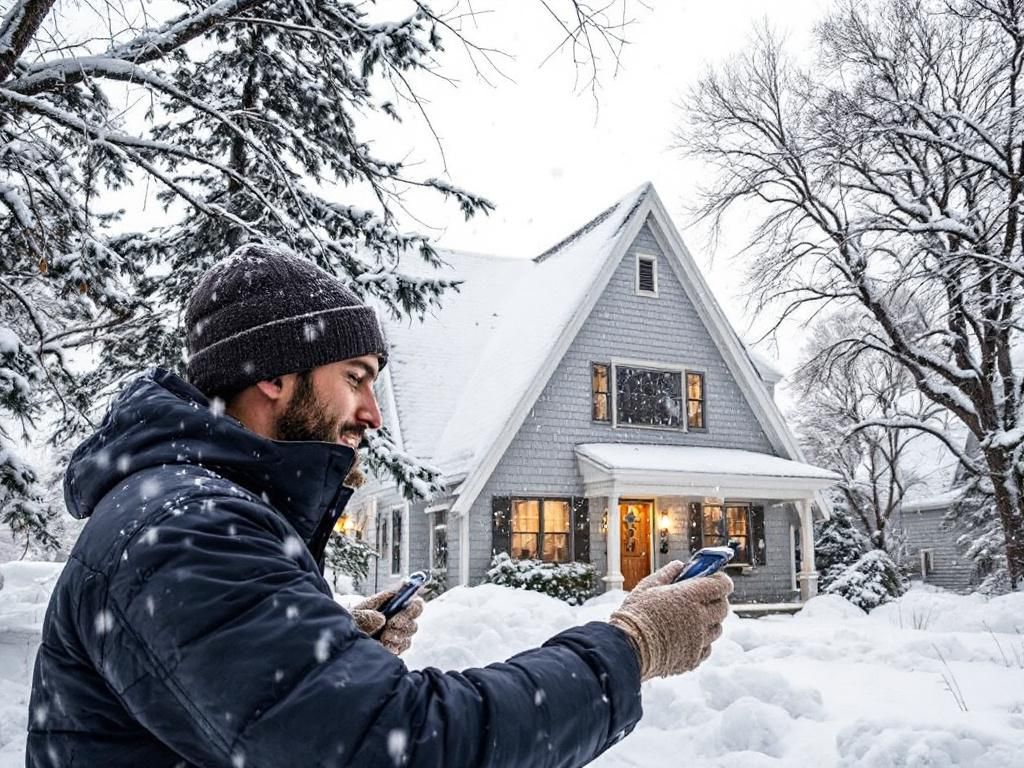When the temperature drops and snow starts falling, rental maintenance needs shift into high gear—especially in a place like Denver. With winter storms, icy sidewalks, and freezing pipes all in the mix, it's critical that both landlords and tenants know their roles and stay proactive.
For tenants, understanding winter maintenance expectations isn’t just about comfort—it’s about safety, property care, and avoiding avoidable damage fees. Here's what renters in Denver should keep in mind as the cold season sets in.
Why Winter Maintenance Matters More in Denver
Denver winters can be unpredictable. One week it’s mild and sunny, the next there’s a foot of snow and subzero temps. These dramatic shifts make winter maintenance more than just routine; it’s a high-priority safety and functionality issue.
Cold weather challenges include:
- Freeze-thaw cycles that crack walkways, driveways, and foundations
- Snow and ice buildup on sidewalks and entryways
- Frozen pipes that can burst and flood units
- Faulty heating systems that can compromise comfort or health
Whether you rent an apartment, duplex, or single-family home, understanding your responsibilities helps prevent costly damage and disruptions.
Who’s Responsible for What?
Maintenance responsibilities can vary depending on your lease. That said, there are some typical expectations:
Landlord Responsibilities (Typically):
- Ensuring the heating system is working properly
- Insulating pipes and performing seasonal checks
- Clearing major snow from driveways or parking areas
- Handling roof, gutter, and exterior repairs
Tenant Responsibilities (Often):
- Notifying the landlord promptly if issues arise (e.g., no heat, leaks)
- Keeping individual walkways and porches clear of snow and ice (if stated in lease)
- Maintaining adequate indoor heat to prevent pipe freezing
- Keeping vents unobstructed for proper airflow
Always check your lease—it should outline who does what. If it’s unclear, ask your landlord before winter hits full swing.
Heating Systems: What Tenants Should Watch For
Reliable heat isn’t optional in a Denver winter. If your heating system fails, it can be both uncomfortable and dangerous.
Tips for tenants:
- Test the system early in the season and report issues immediately
- Avoid blocking heating vents with furniture or rugs
- Replace filters if your unit requires tenant upkeep
- Listen for unusual sounds or smells—it may signal a needed repair
Landlords are typically required by law to provide functional heating. But tenants should still keep an eye out and speak up at the first sign of trouble.

Protecting Pipes from Freezing
Frozen pipes are one of the costliest and most disruptive winter maintenance issues. Denver’s dips below freezing make this a common risk.
Tenant actions that help prevent freezing:
- Keep the thermostat set to at least 55°F, even if you’re away
- Open under-sink cabinet doors to allow warm air to circulate around pipes
- Allow a slow drip from faucets during extreme cold spells
If you notice reduced water pressure or strange noises in the plumbing, let your landlord know—it may be a sign that pipes are freezing.
Snow and Ice: Staying Safe and Compliant
Slippery surfaces can quickly become a liability. Denver city rules often require snow removal within a certain timeframe after snowfall, and many landlords pass some of that responsibility on to tenants.
Know the expectations:
- Some leases require tenants to clear their own front steps or walkways
- Use salt or sand to reduce slipping hazards
- Don’t let snow pile up near doors, garages, or dryer vents
In shared buildings, snow removal is usually handled by the landlord or a maintenance service—but when in doubt, ask.
Ventilation and Moisture Control
While most people think of winter as dry, interior humidity from showers and cooking can build up—especially when windows are shut tight.
Why this matters:
- Excess moisture can lead to mold or mildew buildup
- Poor ventilation can damage walls, ceilings, and windowsills
How tenants can help:
- Use exhaust fans when cooking or bathing
- Crack windows occasionally to refresh stale air
- Report any signs of moisture or mold immediately
These small habits go a long way in protecting the rental—and your health.
Emergency Preparedness Tips
Denver storms can knock out power or disrupt access. Having a winter emergency plan is a smart move for any renter.
Consider stocking:
- Flashlights, extra batteries, and blankets
- Bottled water and shelf-stable food
- A backup phone charger
- Sand or kitty litter for icy steps
Know how to shut off water valves in case of a burst pipe, and have your landlord’s contact info readily available.
RentalRiff works with landlords across Denver to ensure their properties are winter-ready. From on-call maintenance support to seasonal inspections, they help rental homes stay safe, warm, and functional throughout the coldest months.
Winter Maintenance Is a Shared Responsibility
Keeping a rental in good shape through Denver’s winter isn’t just up to the landlord—or the tenant. It’s a team effort.
When tenants understand their role in preventing weather-related damage, it not only protects the property but also creates a smoother, more comfortable experience for everyone involved.
Be proactive. Communicate early. And when in doubt, check your lease—and ask.
Because in a Denver winter, preparedness is the best way to stay warm, dry, and damage-free.

.jpg)